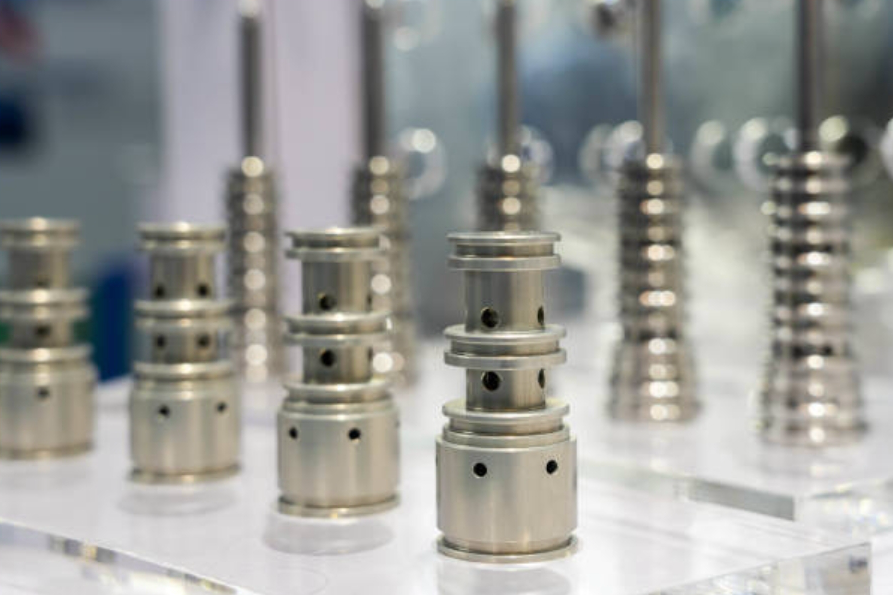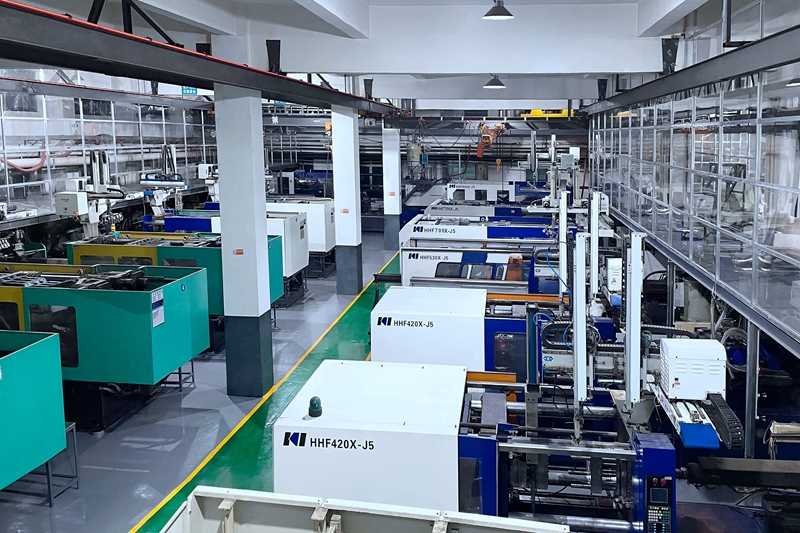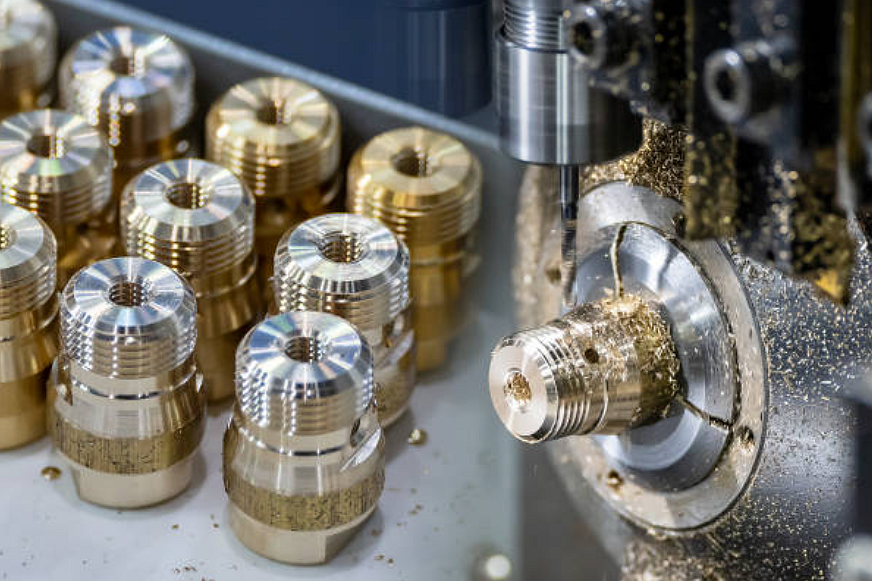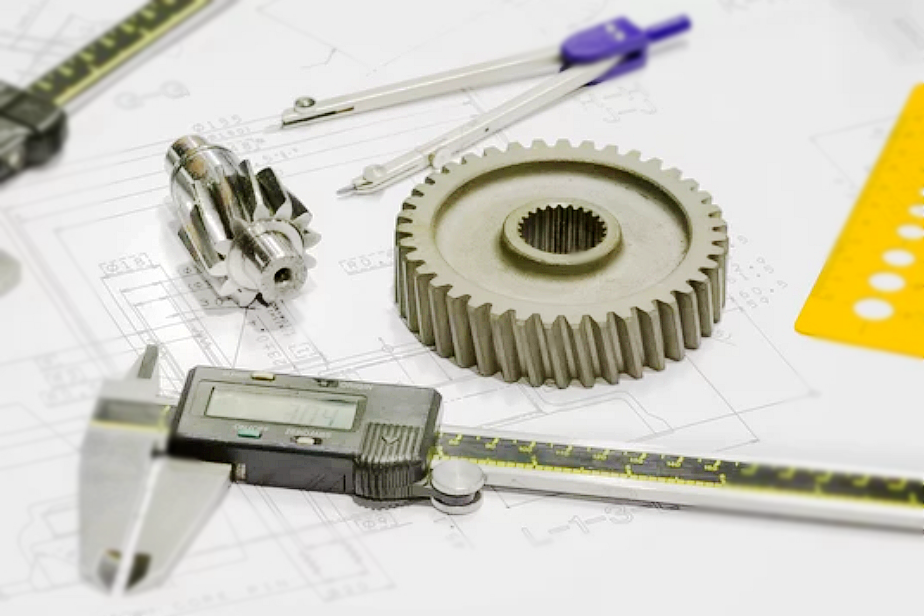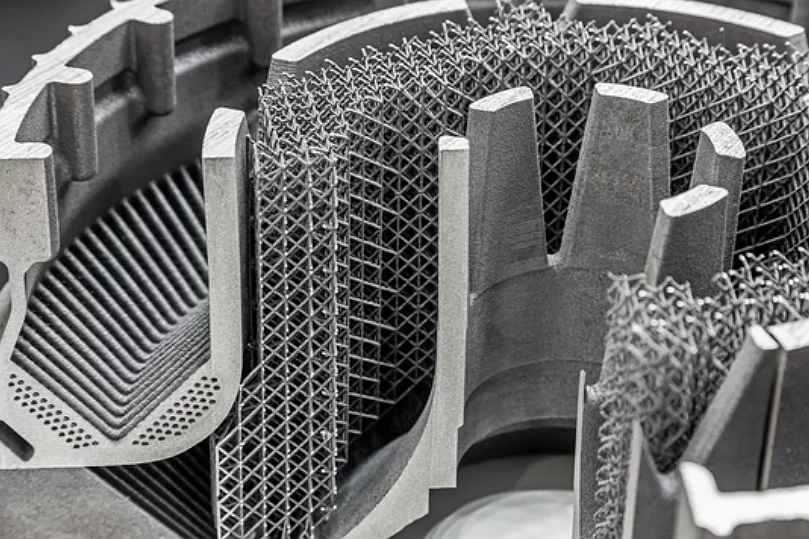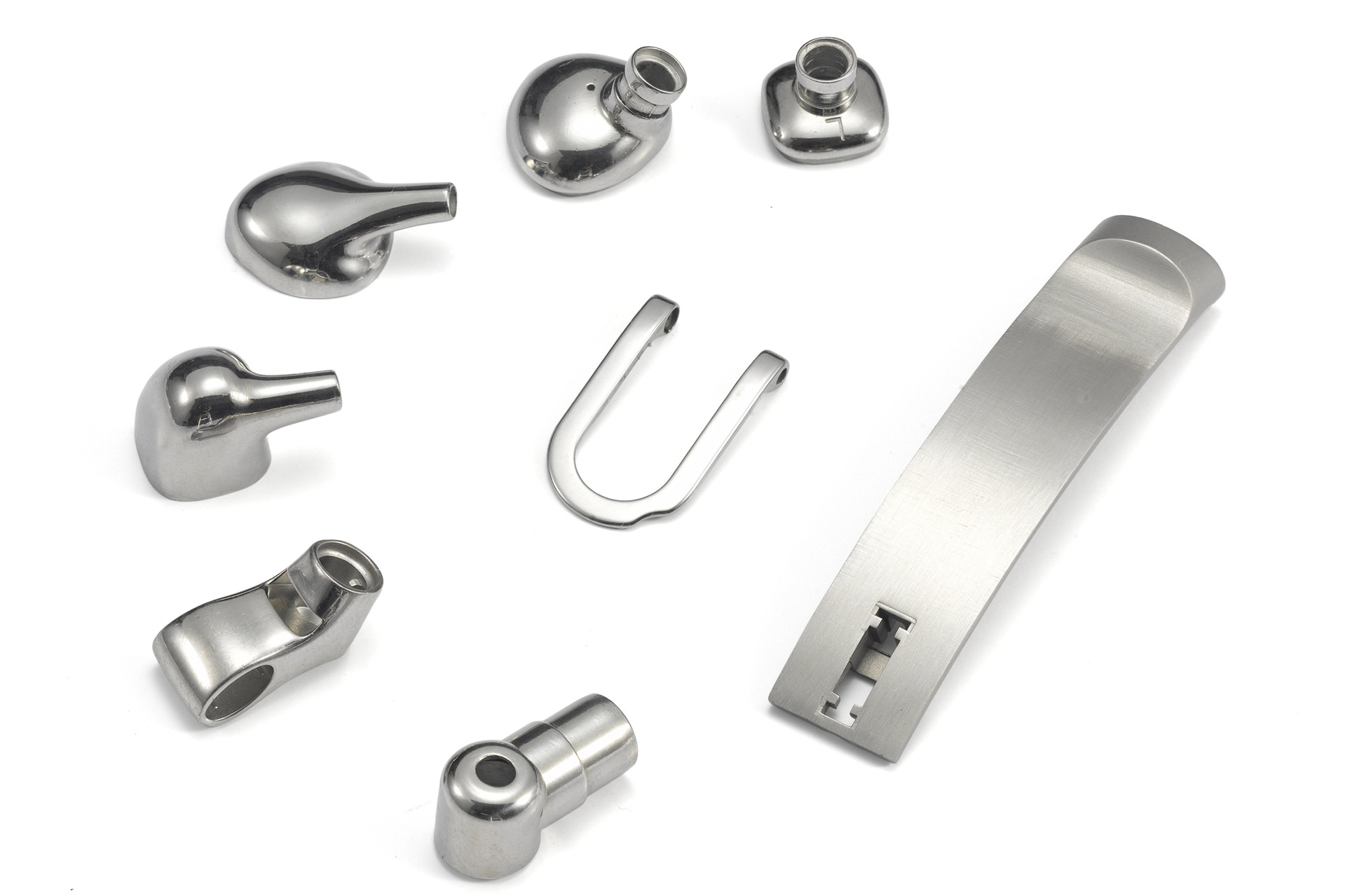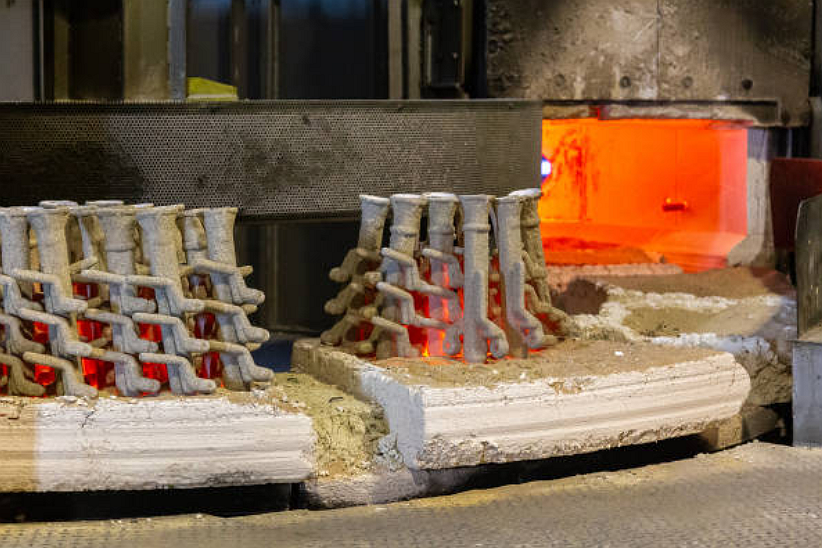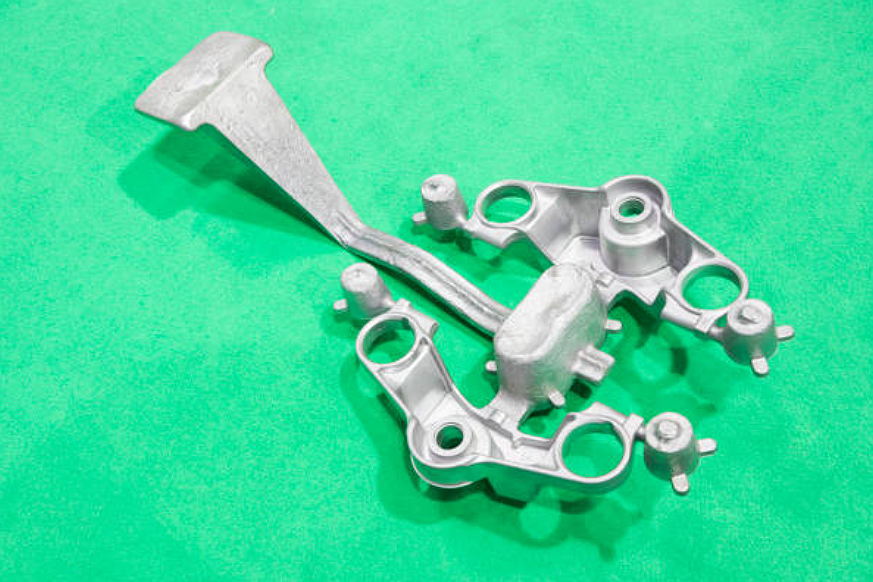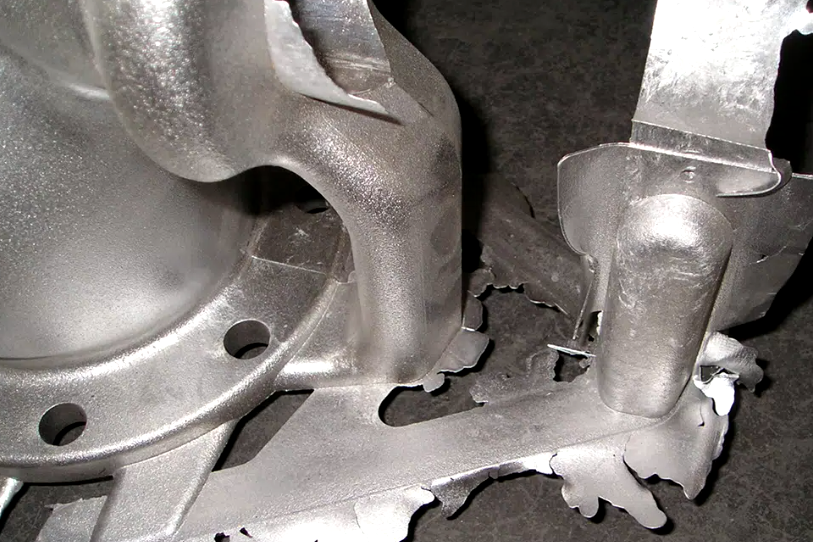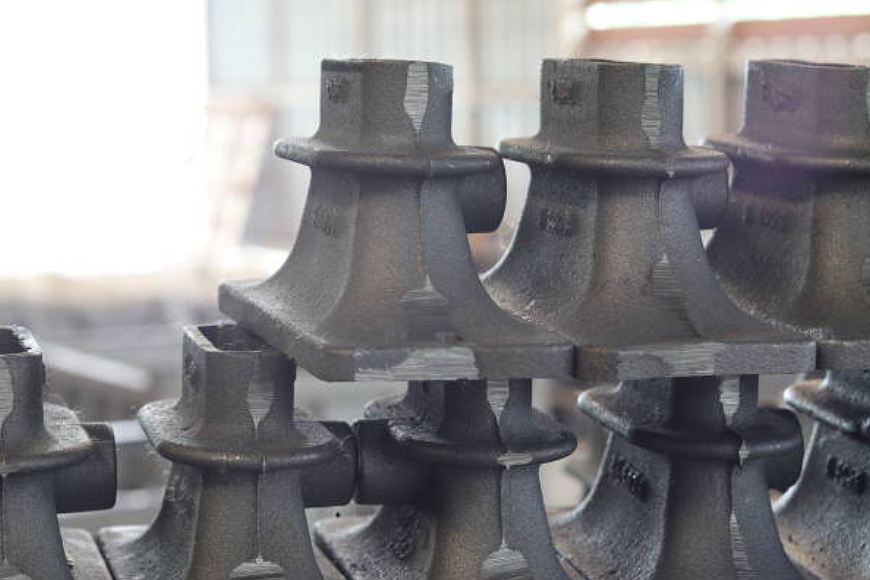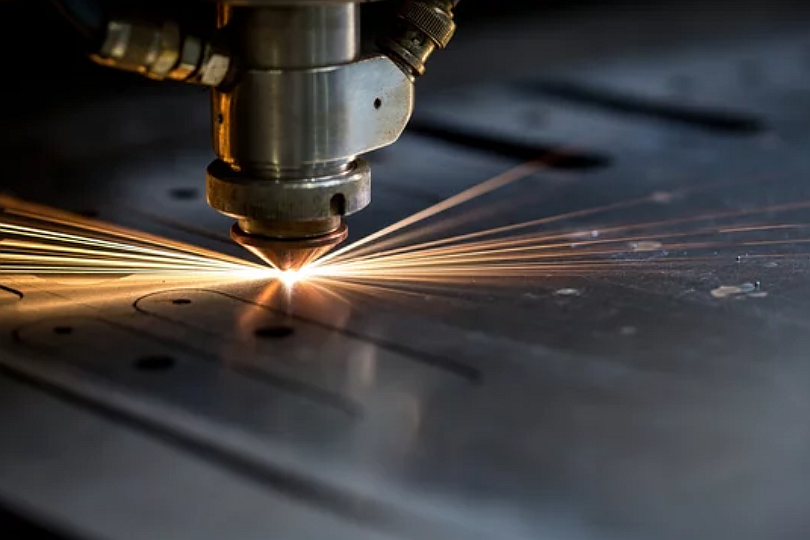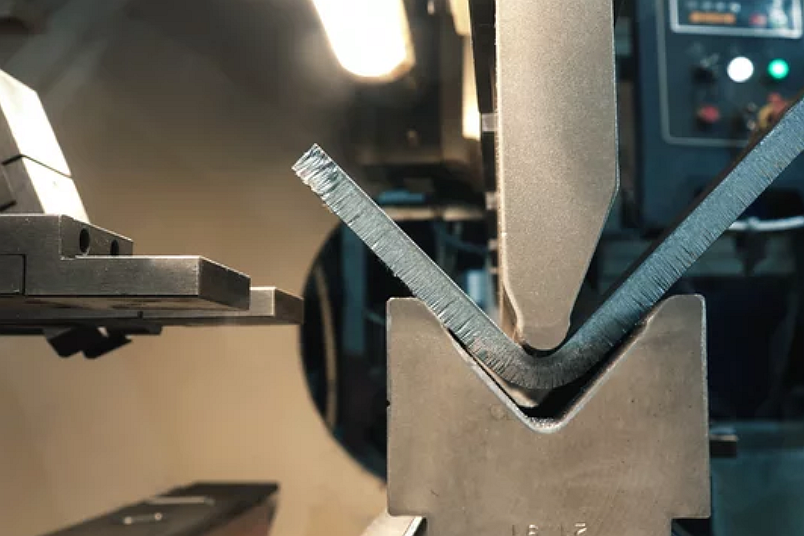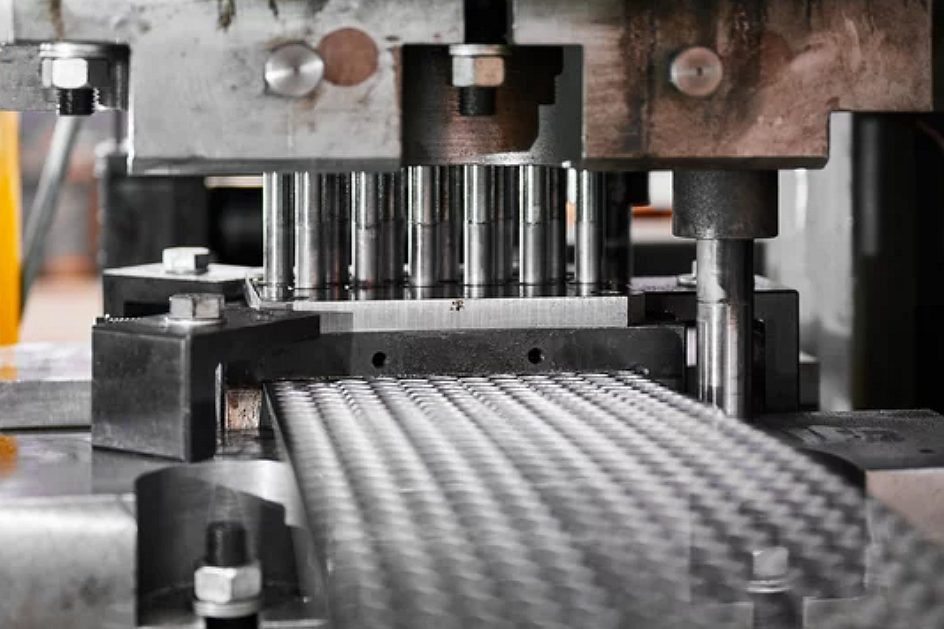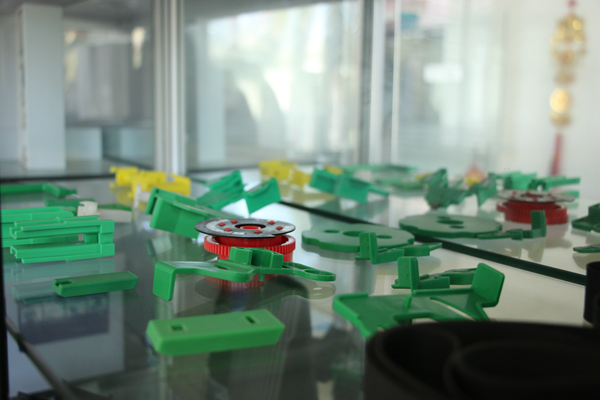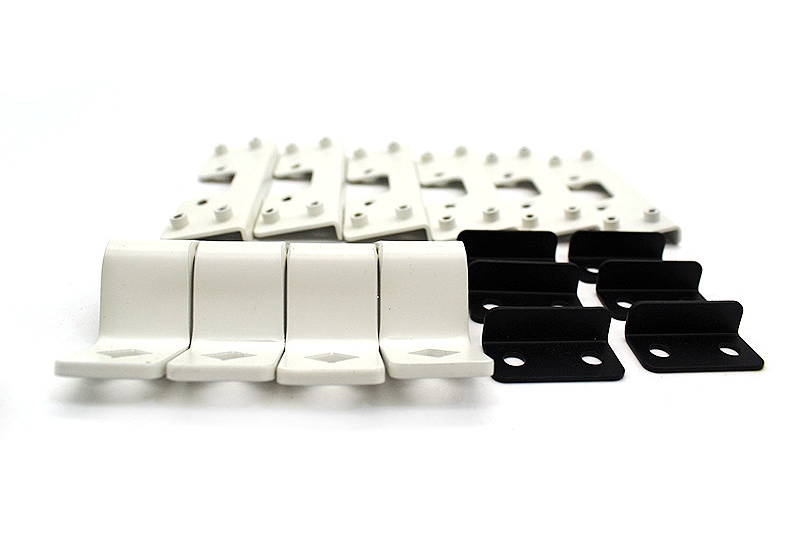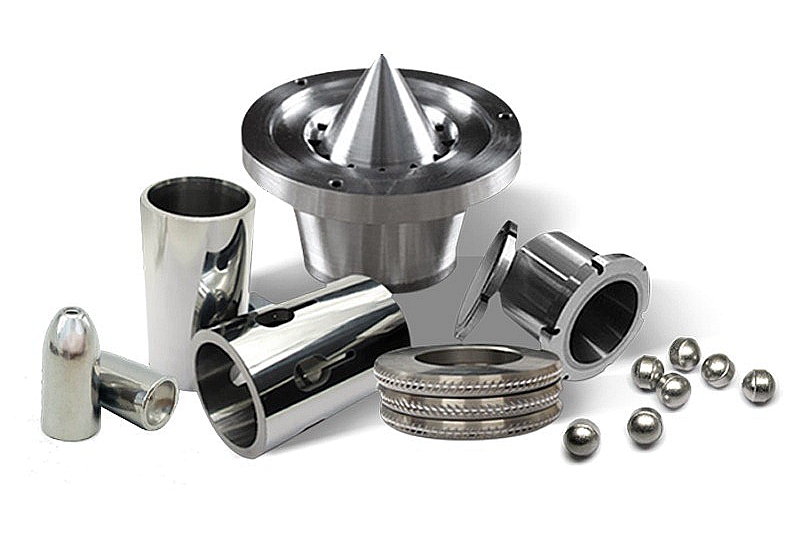How To Select The Manufacturing Methods For Custom Metal Parts?
Importance Of Selecting the Right Manufacturing Method
Selecting the proper manufacturing methods for custom metal parts is a critical decision in production. The choice of method significantly impacts the project's quality, cost-efficiency, and overall success. At Neway, a leading custom metal parts manufacturer, we offer various techniques, including Metal Injection Molding (MIM), Die Casting, and Metal Stamping, to ensure our clients receive components that meet their unique specifications.
Each method has its strengths, whether it's the precision achievable through MIM or the high production rate of Die Casting. We can optimize the process by carefully evaluating the project requirements and material specifications, resulting in custom metal parts tailored to exact needs and cost-effectiveness. In today's competitive manufacturing landscape, making the right choice is essential to deliver high-quality custom metal parts that stand out in terms of durability, functionality, and overall performance. It's about aligning the project's demands with the manufacturing method's capabilities to achieve the best custom metal component production results.
Neway's Expertise In Custom Metal Parts Manufacturing
Neway, a trailblazer in custom metal parts manufacturing, is a testament to precision, innovation, and excellence. With a comprehensive range of fabrication methods, including Metal Injection Molding (MIM), Die Casting, Laser cutting, and Metal Stamping, we have mastered the art of crafting custom metal components that meet the exacting demands of our diverse clientele.
Our expertise extends to a broad spectrum of materials, from steel to titanium and brass, allowing us to serve aerospace, automotive, medical, and beyond industries. Neway's commitment to excellence is reflected in our state-of-the-art facilities and a team of skilled engineers and technicians who leverage cutting-edge technology to ensure top-tier custom metal parts production. We pride ourselves on our ability to deliver tailor-made solutions, ensuring every project receives the attention it deserves. Regarding custom metal parts, Neway is synonymous with precision, quality, and unmatched expertise in the industry.
Considerations In Pre-Selecting Manufacturing Methods
Selecting the ideal manufacturing method for custom metal parts is a pivotal decision, and several critical factors must be considered to ensure the project's success. Neway, a distinguished custom metal parts manufacturer, has perfectly honed this process. First and foremost, the material choice is paramount; depending on the application, materials like steel, titanium, and brass offer unique characteristics that must align with project requirements. Neway's expertise in working with a wide range of materials ensures that clients receive precisely the properties they need.
Another pivotal factor is the production volume. Methods like Metal Injection Molding (MIM) are exceptional for intricate, low-volume projects, whereas Die Casting excels in high-production scenarios. At Neway, we carefully analyze the project's scale, budget, and specifications to recommend the most cost-effective and efficient manufacturing method. Our wealth of experience and dedication to client success have made us a trusted partner in the complex decision-making process of choosing a suitable manufacturing method for custom metal parts.
Know About Custom Metal Parts
Custom metal parts are specialized components tailored to precise specifications and manufactured to meet the unique requirements of various industries. Their significance lies in their ability to enhance the performance and efficiency of diverse applications. In aerospace, custom metal parts play a critical role in ensuring aircraft's structural integrity and safety, from lightweight aluminum components to high-strength steel assemblies, contributing to the reliability and safety of air travel. Similarly, these parts are essential for constructing engines, transmissions, and vehicle chassis in the automotive sector, optimizing fuel efficiency and overall vehicle performance.
Medical equipment relies on custom metal parts for precision instruments and devices, promoting accuracy and durability in healthcare procedures. Custom metal parts also serve the energy sector, supporting power generation and transmission systems and the manufacturing industry by enabling efficient production processes. The adaptability and precision of custom metal parts are paramount in these industries, ensuring that each component meets the specific needs and standards of its application, ultimately driving innovation and success across a wide range of sectors.
Available Custom Manufacturing Methods
Custom metal parts manufacturing offers diverse methods to suit various needs. CNC machining, a precise technique, carves parts from solid materials using computer control. Rapid molding, a cost-effective option, employs molds to create custom metal components quickly. 3D printing builds parts layer by layer, offering design flexibility.
Metal Injection Molding (MIM) is ideal for complex shapes, while Investment Casting is perfect for intricate, high-quality parts. Die Casting provides efficient mass production, Gravity Casting is used for simple geometries, and Sand Casting excels in more extensive parts and prototypes. Laser Cutting offers precision in cutting and shaping metals, and Metal Bending allows customization of metal shapes. Lastly, Metal Stamping is used to create consistent, high-volume parts efficiently. Neway specializes in these methods as a premier manufacturer that caters to various custom metal parts needs.
CNC machining
CNC machining, or Computer Numerical Control machining, is Neway's exact and versatile manufacturing method for custom metal parts production. It involves automated cutting and shaping of materials such as metal, plastic, or ceramics based on computer-aided design (CAD) models. CNC machining's strengths lie in its remarkable precision, allowing for intricate designs and tight tolerances. Its repeatability ensures consistent quality in large-scale production. This method is well-suited for many materials, including steel, titanium, and brass, making it a versatile choice.
However, CNC machining has limitations, such as longer production times than rapid methods like Die Casting. It may also be less cost-effective for high-volume production due to the time-intensive nature of programming and setup. Nevertheless, Neway's expertise in CNC machining manufacturing ensures that clients receive top-quality custom metal parts tailored to their specifications with impeccable precision.
Rapid molding
Rapid molding is a versatile manufacturing method used in custom metal parts production. This technique involves molds to create metal components quickly and cost-effectively. Its strengths lie in its efficiency in producing large quantities of parts with consistent quality, making it suitable for mass production. Rapid molding also enables the creation of complex geometries, ensuring that custom metal components meet specific design requirements.
However, rapid molding has limitations when compared to other methods. It may not be as suitable for very intricate or highly detailed parts that require extreme precision, where methods like CNC machining or Die Casting might be preferable. Tooling and setup costs can also be significant, making it more cost-effective for larger production runs. For Neway, balancing the strengths and limitations of rapid molding is essential to provide clients with an efficient and economical solution for custom metal parts manufacturing.
3D printing
3D printing is an innovative manufacturing method increasingly employed for custom metal parts production. This technique, also known as additive manufacturing, builds components layer by layer from metal powders, offering distinct advantages. Its greatest strength is design flexibility, enabling the creation of complex, intricate shapes that may be challenging with traditional methods. It's also well-suited for prototyping, allowing rapid iterations and minimal material wastage. Additionally, 3D printing is advantageous for low-volume, highly customized metal parts.
However, 3D printing for metal parts has limitations. Achieving the same level of strength and durability as traditional manufacturing methods can be challenging. The process can be relatively slow for large-scale production, and post-processing steps are often necessary to refine the final part. The cost of metal powders and 3D printing equipment can also be a limiting factor. Neway carefully considers these strengths and limitations when utilizing 3D printing to ensure clients receive custom metal parts that align with their specific project requirements.
Metal Injection Molding (MIM)
Metal Injection Molding (MIM) is a versatile manufacturing method offered by Neway that provides exceptional precision in creating custom metal parts. MIM is particularly valuable in industries like consumer electronics and telecommunications. This process involves blending fine metal powders with a polymer binder to create a feedstock, which is then injected into molds and sintered, resulting in fully dense metal components.
Custom MIM parts offer notable advantages, including exceptional design flexibility, achieving intricate geometries, and maintaining tight tolerances with precision values down to 0.02 mm. It's a cost-effective solution for high-volume production while minimizing material waste. However, MIM does have limitations, such as longer lead times due to tooling and batch production requirements. Despite these, MIM's precision and versatility make it a compelling choice for crafting custom metal components in various industries, ensuring the highest quality and performance.
Investment Casting
Investment casting, also known as lost-wax casting, is employed by Neway to produce custom metal parts for various industries, including Consumer Electronics and telecommunications. This process involves creating intricate parts by crafting a wax pattern coated with ceramic material, forming a mold. Once heated, the wax melts, leaving a cavity filled with molten metal, often aluminum or stainless steel, to solidify and take the desired shape.
Custom investment casting parts boast remarkable precision, with tolerances as tight as ±0.005 inches, making it ideal for intricate components. This method's strengths lie in its ability to replicate intricate details and deliver near-net-shape parts, reducing post-processing needs. However, its limitations include longer production cycles due to the intricacies of the process, making it less suitable for high-volume production. Neway's proficiency in investment casting ensures exceptional quality and precision for custom metal parts in critical industries.
Die Casting
Die casting is a precision manufacturing method offering exceptional versatility and efficiency in crafting custom metal parts. This process involves injecting molten metal into a pre-designed mold, solidifying to create intricately detailed components. Neway, a leader in production engineering, excels in die casting across various industries, including Consumer Electronics and Telecommunication.
The strengths of die casting lie in its high precision, capable of achieving tolerances as tight as ±0.002 inches, making it ideal for crafting intricate components in power tools or locking systems. Furthermore, it ensures an excellent surface finish, reducing the need for secondary machining. However, die casting may have limitations in the size and weight of parts produced, with more significant components requiring alternative methods like sand casting. Neway's commitment to quality and cutting-edge technology allows them to harness the full potential of die casting, providing innovative solutions in custom die-casting parts manufacturing.
Gravity Casting
Gravity casting is a versatile manufacturing method offered by Neway, ideal for producing custom metal parts across various industries, including Consumer Electronics, Telecommunication, Lighting Solutions, Power Tools, and Locking systems. This process involves pouring molten metal into a pre-designed mold, relying solely on the force of gravity to fill the mold cavity. It excels in precision, tolerating as tight as ±0.1 mm, ensuring high-quality components for demanding applications.
The strengths of gravity casting lie in its ability to produce intricately detailed parts with excellent surface finishes. This technique is particularly advantageous for creating lightweight and complex shapes, making it a preferred choice for applications like lightweight casings for consumer electronics, telecom infrastructure components, and intricately designed parts for lighting fixtures. While gravity casting is a cost-effective solution for many projects, its limitations primarily revolve around material selection, as it's better suited for non-ferrous metals. Despite this, it remains a valuable method for crafting gravity-casting custom metal components with remarkable precision and detail.
Sand Casting
Custom Sand casting, a versatile manufacturing method offered by Neway, is essential in crafting custom metal parts across various industries. This process involves creating molds using sand as the primary material. It offers several vital strengths but does have some limitations.
Sand casting is renowned for its cost-effectiveness and adaptability, making it an ideal choice for prototypes and small to medium production runs. It caters to the intricacies of custom metal parts with remarkable precision, often achieving tolerances within a range of ±0.125 mm. Moreover, it supports a wide array of materials, including aluminum, iron, and steel, facilitating versatility in manufacturing.
However, sand casting may not be suitable for projects demanding ultra-high precision or rapid production, as its dimensional accuracy might not match advanced methods like CNC machining. Additionally, the process may result in a rougher surface finish compared to other techniques, necessitating additional post-processing steps. While highly advantageous for many applications, weighing the benefits against these limitations is essential when considering sand casting for custom metal parts.
Laser Cutting
Laser cutting, a cutting-edge technique in Neway's sheet metal fabrication service, offers exceptional precision and versatility when crafting custom metal parts across diverse industries. This method involves using a high-powered laser to cut through metal sheets precisely.
Laser cutting service stands out for its unparalleled precision, achieving tight tolerances down to ±0.025 mm, making it ideal for intricate and highly customized metal parts. This method is incredibly efficient, reducing material waste and the need for extensive post-processing. It excels in thin and thick metal sheets, covering materials like steel, aluminum, and titanium, and provides clean, burr-free cuts.
However, laser cutting may not be cost-effective for large-scale production runs due to high equipment and energy costs. Additionally, the process might not be suitable for highly thick materials or reflective surfaces, as it can encounter difficulties in maintaining optimal cutting quality.
Metal Bending
Metal bending, a fundamental technique in Neway's sheet metal fabrication service, is crucial in creating custom metal parts across various industries. This method involves shaping metal sheets by applying force, offering a range of strengths alongside certain limitations.
Metal bending is appreciated for its cost-efficiency and rapid production capabilities, making it an excellent choice for creating custom parts in bulk. It caters to many materials, including steel, aluminum, and copper. The process is highly versatile, allowing for the creation of complex geometries, and it provides impressive dimensional accuracy, typically achieving tolerances within ±0.5 mm. Additionally, metal bending eliminates the need for joints or welding in many cases, resulting in more durable and aesthetically pleasing final products.
However, metal bending may not be suitable for applications requiring extremely tight tolerances or high precision, as other techniques, like CNC machining, may offer greater accuracy. The process may also pose challenges when working with thick or hard metals.
Metal Stamping
Metal stamping, a core process in Neway's sheet metal fabrication service, is highly efficient for manufacturing custom metal parts across various industries. It uses precision dies to cut, shape, and form metal sheets.
Metal stamping is renowned for its speed and cost-effectiveness, making it ideal for high-volume production of custom metal parts. The process excels at achieving consistent and intricate shapes with tolerances as tight as ±0.1 mm, ensuring high precision. Moreover, it supports a wide range of materials, including stainless steel, aluminum, and brass, providing versatility in manufacturing. Metal stamping often results in clean and smooth edges, reducing the need for additional finishing processes.
While metal stamping is excellent for high-volume production, it may be less cost-effective for small runs due to the setup costs associated with creating precision dies. Additionally, it may not be suitable for highly complex, three-dimensional shapes requiring deep drawing or strict surface finish requirements.
Factors for Selection
Material Considerations
Material choice is critical to selecting the proper manufacturing method for custom metal parts. It profoundly influences the part's performance, durability, and overall quality. The importance of material selection cannot be overstated, as it directly impacts factors such as strength, corrosion resistance, and thermal conductivity. The chosen material must meet the part's intended application's unique requirements while aligning with the selected manufacturing process's capabilities.
For custom metal parts, several materials are relevant across various industries. Steel is a versatile choice, offering excellent strength and durability. Aluminum is prized for its lightweight properties and corrosion resistance, making it ideal for aerospace and automotive applications. Stainless steel excels in environments where corrosion resistance is paramount, as seen in medical devices and food processing equipment. Copper is an excellent conductor of electricity, making it essential in electronics and telecommunications. Material selection is a cornerstone in successfully producing custom metal parts, and choosing a suitable material is crucial for meeting specific performance and application requirements.
Precision Requirements
The precision requirements for custom metal parts play a pivotal role in the selection of manufacturing methods, and there's a direct correlation between the desired accuracy and manufacturing costs. Higher precision demands typically result in more complex and time-consuming processes, which, in turn, increase production costs. For instance, methods like CNC machining or laser cutting offer outstanding precision but can be costlier due to their meticulous nature. On the other hand, processes like metal bending or stamping are more cost-effective but might achieve a different level of precision. Therefore, balancing precision needs and budget constraints is essential to make a cost-effective choice.
Accuracy requirements should also align with the certainty in process selection. If a project necessitates exceptionally tight tolerances, opting for a method with a proven track record in delivering such precision is crucial. Specific processes like CNC machining are well-established for high accuracy. However, if the precision requirements are more lenient, processes with some variability tolerances, like metal stamping, might still be suitable. In selecting the proper manufacturing method for custom metal parts, ensuring a match between the accuracy demands and the process capabilities is essential to achieve the desired quality without unnecessary cost overruns.
Volume and Scalability
Production volume significantly influences the choice of manufacturing methods for custom metal parts. Due to their precision and flexibility, processes like CNC machining or 3D printing may be suitable for small production runs or prototypes. However, as production volumes increase, it becomes more cost-effective to opt for methods like metal stamping, metal bending, or even die casting, which are efficient for high-volume manufacturing. When producing large quantities, these processes often involve higher initial setup costs but are more economical per unit. Therefore, it's essential to consider the expected production volume when selecting the manufacturing method, ensuring it aligns with both cost-effectiveness and project requirements.
Scalability is a vital aspect to consider when selecting manufacturing methods. Processes that offer scalability options can adapt to changing production needs without significant retooling or investment. For instance, metal stamping is highly scalable, allowing quick adjustments to accommodate larger production runs. Similarly, die casting provides mass production scalability in the automotive and consumer electronics industries. By choosing methods with inherent scalability, manufacturers can efficiently respond to fluctuating demand and ensure the cost-effectiveness of their operations.
Neway Custom Manufacturing Capability
Neway has gradually improved the basic custom hardware, plastic, and ceramic parts manufacturing system after 30 years of growth from the original CNC workshop. As well as polishing, PVD, and simple assembly lines. Provide one-stop, non-standard manufacturing services to our customers.
